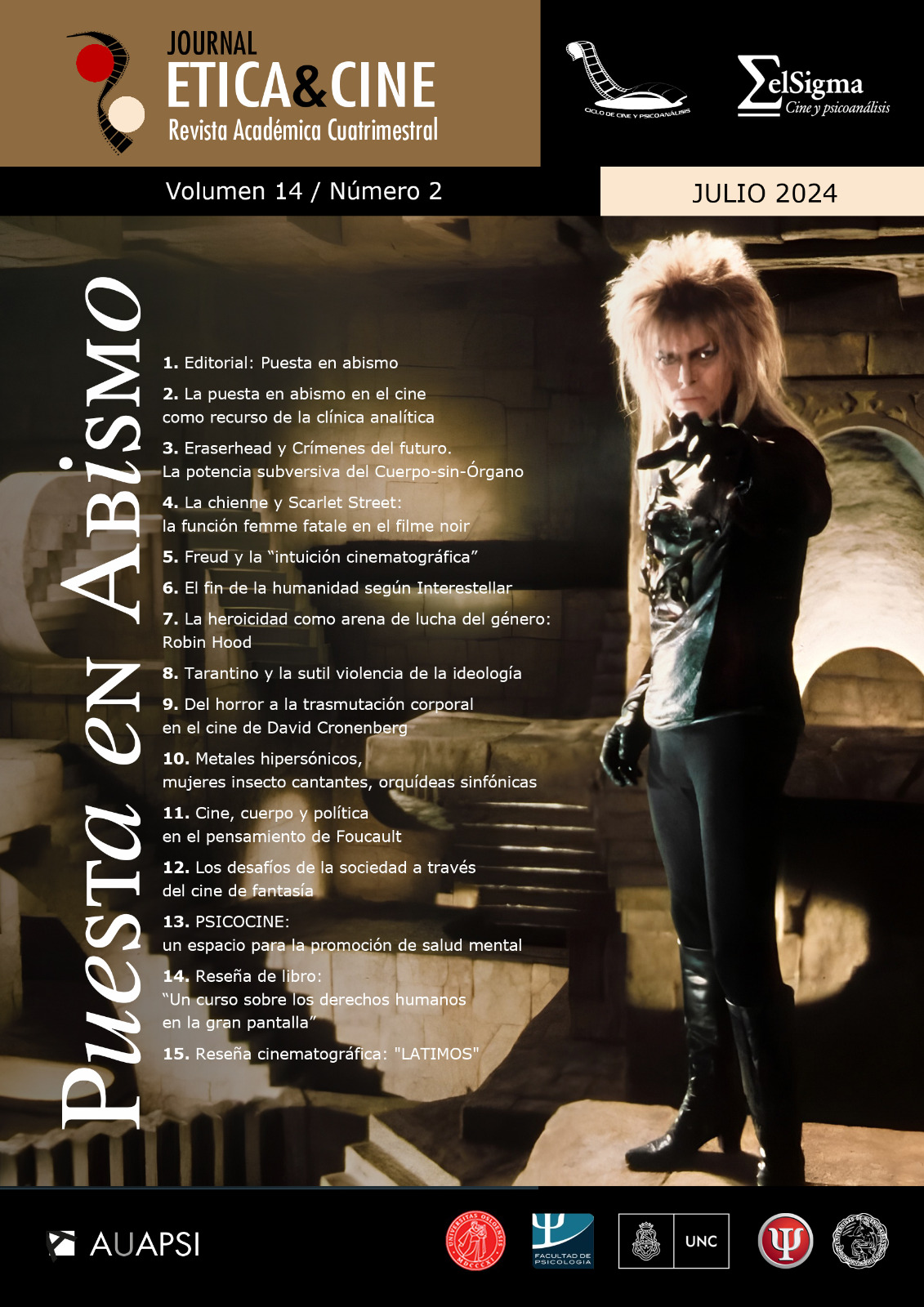Heroicity as an arena of gender struggle. The case of the Robin Hood series
DOI:
https://doi.org/10.31056/2250.5415.v14.n2.45759Keywords:
Heroicity, Figurations, Gender Technologies, HeteropatriarchyAbstract
In the first decade of the 21st century, diverse socio-cultural sectors, with different and even antagonistic agendas, dispute the right to fix the meanings of femininity and masculinity. Such a dispute is refracted in the television series Robin Hood (BBC, 2006-2009), whose figurations of heroicity function as an arena of gender dispute: the arena is the process of subjectivation, and the dispute, the right to normativize the ways of becoming a “man” or a “woman”. The struggle was concentrated around two contentious nodes – the depatriarchalization of masculinity and feminine empowerment– and developed over three seasons, to finally settle on options that annul the lines of flight from the heteropatriarchal system that were initially opened.
References
Beynon, John (2002): Masculinities and Culture, Buckingham, Open University Press.
Dean, Jonathan (2010): Feminism in the Papers. Contested feminisms in the British quality press. Feminist Media Studies, Vol. 10, issue 4, 391-407. DOI: 10.1080/14680777.2010.514112
Ferriss, Suzanne y Young, Mallory (eds.) (2008): Chick Flicks. Contemporary women at the movies, New York and London, Routledge.
Hodgkinson, Will (16 de junio de 2009): Robin Hood: easily replaced by another Archer. The Guardian. , https://www.theguardian.com/culture/tvandradioblog/2009/jun/16/robin-hood-jonas-armstrong-bbc
Luque, Cecilia Inés (2018). Queerness en el bosque de Sherwood: repensando la masculinidad en la TV británica. Revista de Culturas y Literaturas Comparadas, vol. 8. https://revistas.unc.edu.ar/index.php/CultyLit/article/view/22626
Luque, Cecilia Inés (2019). De heroína a víctima de femicidio, o cómo reterritorializar la femineidad. Marian en la serie Robin Hood. En Lilia Vázquez Lorda (comp.), Actas de las XIV Jornadas Nacionales de Historia de las Mujeres y IX Congreso Iberoamericano de Estudios de Género. Universidad Nacional de Mar del Plata. https://igehcs.conicet.gov.ar/actas-de-las-xiv-jornadas-nacionales-de-historia-de-las-mujeres/
Martín Alegre, Sara (2010): El retorno de Leónidas de Esparta: el fracaso de la hiper-masculinización del héroe en la novela gráfica 300, de Frank Miller y Lynn Varley, y su adaptación cinematográfica, en Josep Marti et al. (eds.), Desvelando el cuerpo. Perspectivas desde las ciencias sociales y humanas, Barcelona, CSIC, pp.223-236. https://gent.uab.cat/saramartinalegre/sites/gent.uab.cat.saramartinalegre/files/El%20retorno%20de%20Le%c3%b3nidas%20en%20300%20Sara%20Mart%c3%adn.pdf
McClain, Lee Tobin (1997): Gender anxiety in Arthurian romance. Extrapolation, Vol. 38, Iss. 3, 193-197. https://online.liverpooluniversitypress.co.uk/doi/abs/10.3828/extr.1997.38.3.193?journalCode=extr
Richard Armitage Online (s.f.) [Sitio web]. Robin Hood series 2: Playing Guy of Gisborne (1). http://www.richardarmitageonline.com/robin-hood/robin-hood-gisborne2a.html
Downloads
Published
Issue
Section
License
Copyright (c) 2024 Ética y Cine Journal

This work is licensed under a Creative Commons Attribution-ShareAlike 4.0 International License.
Los autores que publiquen en Ética y Cine Journal aceptan las siguientes condiciones:
Los autores/as conservan los derechos de autor © y permiten la publicación a Ética y Cine Journal, bajo licencia CC BY-SA / Reconocimiento - Reconocimiento-CompartirIgual 4.0 Internacional. La adopción de esta licencia permite copiar, redistribuir, comunicar públicamente la obra, reconociendo los créditos de la misma, y construir sobre el material publicado, debiendo otorgar el crédito apropiado a través de un enlace a la licencia e indicando si se realizaron cambios.

Este obra está bajo una licencia de Creative Commons Reconocimiento-CompartirIgual 4.0 Internacional.




